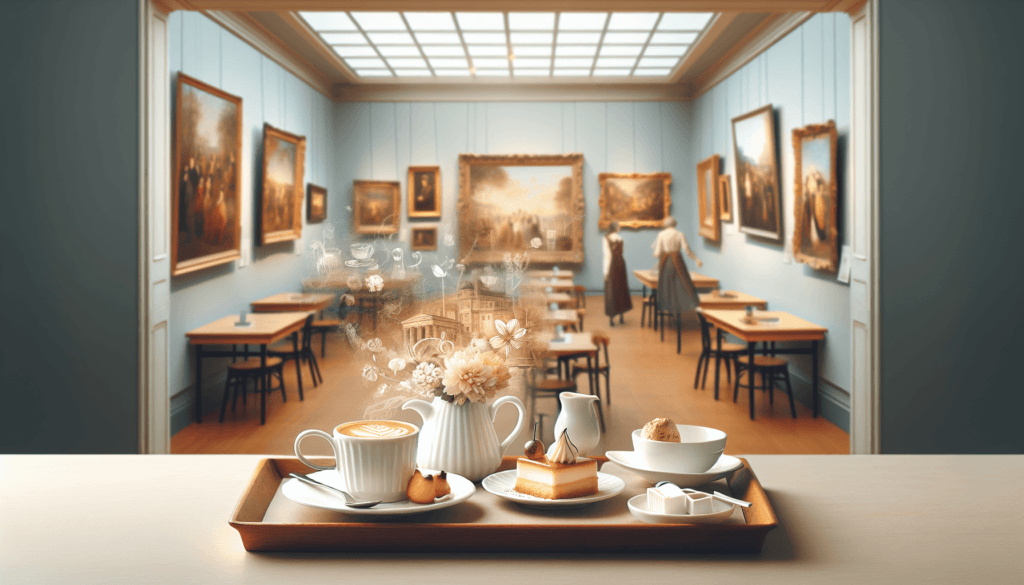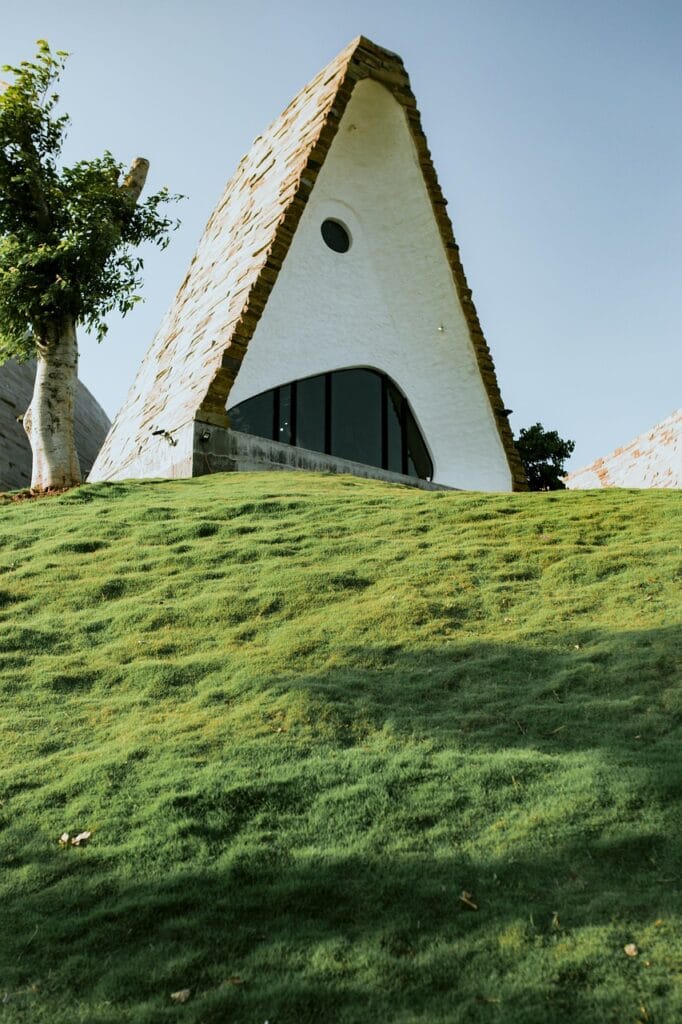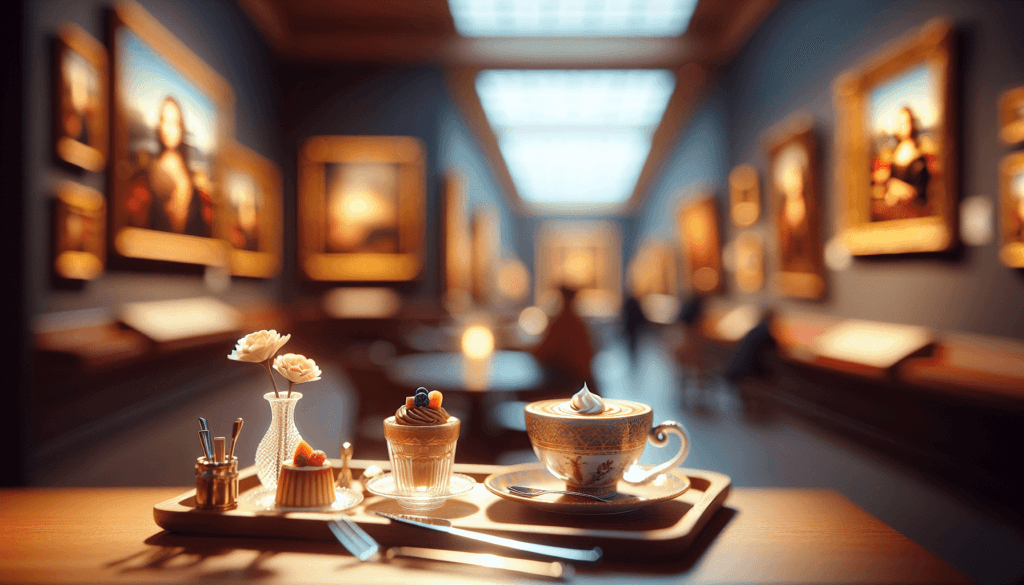
Have you ever considered how a simple visit to a museum café could enrich your cultural experience? Museum cafes are much more than a place to grab a quick snack or drink; they serve as cultural hubs, adding layers to your visit in ways you might not expect. Imagine stepping out of a gallery, your mind swirling with thoughts and images, and finding yourself in a space that not only satisfies your hunger but also feeds the stories you’ve just encountered. Let’s journey through this intersection of art, history, and food.

Museum Cafes as Cultural Hubs
Throughout history, museum cafes have evolved from mere resting spots into vital extensions of the cultural institutions they inhabit. This tradition began with the V&A Museum in 1868, where the cafe was designed not just to satiate hunger but to draw people further into the museum’s cultural space. Such places provide an opportunity for reflection and conversation, often becoming as memorable as the exhibits themselves.
The Origin of the Museum Café
The Victoria and Albert Museum in London set a precedent when it introduced a café that was as thoughtfully curated as its collections. Its purpose was dual: providing a place for visitors to rest and creating an environment where they could continue to immerse themselves in the museum’s atmosphere. Today, this notion persists, encouraging museum-goers to pause and engage with their experiences differently.
Modern Evolution and Cultural Significance
Today’s museum cafes are designed to echo the themes and stories of their parent institutions. They’re not just about consuming food; they are spaces where you can digest the narratives you’ve just experienced. Often, these cafes incorporate local food traditions, reflecting the surrounding area’s culture and bolstering the museum’s cultural offering.
Diverse Cafe Offerings Across the UK
The United Kingdom is home to a rich array of museum cafes, each offering unique experiences that contribute to their institution’s mission. These cafes have become attractions in their own right, weaving local culture, history, and cuisine into a cohesive narrative that enhances the museum visit.
Garden Cafe at Hospitalfield
In the picturesque setting of Hospitalfield, the Garden Cafe invites you to savor the flavors of the region, focusing on local ingredients and recipes. As you enjoy your meal, you’re enveloped by the natural beauty of the garden, which creates a peaceful, contemplative environment.
Open Kitchen Cafe at the People’s History Museum
This cafe’s commitment to sustainability and community shines through its menu, which features locally sourced ingredients. It’s a place where history meets modern culinary practice, offering meals that are as thought-provoking as the exhibits on social justice and democracy.

Examples of Notable Museum Cafes
While many cafes serve their purpose well, some stand out for their exceptional contributions to the cultural experience. Let’s take a closer look at a few notable examples, illustrating how each one enhances its visitors’ journey.
V&A Café, London
Nestled within the Victoria and Albert Museum itself, the V&A Café offers luxury dining on a budget. The setting is steeped in history, with architectural ornamentation that stimulates both your appetite and imagination. Here, a cup of tea isn’t just a beverage; it’s an invitation to bask in the splendor of Victorian design.
Garden Cafe, Garden Museum
This cafe is renowned for its seasonal menu, making it an idyllic spot for those who appreciate horticultural themes. It’s a tranquil retreat where you can contemplate the intricacies of garden design while savoring fresh, garden-inspired dishes. The peaceful courtyard setting enhances this unique offering, allowing for a serene dining experience amidst the hustle of London.
Louie, South London Gallery
A place of community, Louie brings people together with its inclusive menu, brimming with vegan options and a beloved weekend brunch. Here, food is a medium for creating connections, resonating well with the gallery’s contemporary, community-focused initiatives.
Corner, Tate Modern
Known for its family-friendly menu, Corner complements the dynamic atmosphere of Tate Modern. By night, the cafe transforms, offering craft brews and small plates along with their late-night events. This duality captures both the vibrant and reflective elements of the art housed nearby.
Art Cafe, Courtauld Gallery
The Art Cafe offers a burst of color and creativity, echoing the spirit of the Bloomsbury group. You can enjoy freshly baked pastries in a vibrant setting that feels like an exhibit itself, tempting you to linger and reflect on the power of art to inspire liveliness.
Caffè Estorick, Estorick Collection
Situated in a charming Georgian house, this venue provides an Italian-inspired dining experience that complements the Estorick Collection’s focus on modern Italian art. Enjoying a cappuccino here becomes part of an artistic exploration, bridging cultural narratives through cuisine.
The Wallace Collection Restaurant
This restaurant offers upscale afternoon tea in an elegant courtyard setting, becoming an extension of the museum’s luxurious atmosphere. It’s about more than just food; it’s about savoring the experience of leisure within a collection that celebrates opulence.
Crispin at Studio Voltaire
In a quiet, understated locale, Crispin provides a space for contemplation and culinary delight, far removed from city bustle. This minimalistic approach focuses on the essence of being present, enhancing the reflective mood that art often inspires.
The Town Square Cafe, Young V&A
Family-friendly and inclusive, this cafe supports a “Bring Your Own” approach, catering to budget-conscious visitors. Featuring child-friendly meal options, it even boasts prize-winning recognition for its family-oriented atmosphere. This shows how cafes can be accessible and inclusive, inviting every guest to enjoy their visit fully.
The Role of Cafes in Enhancing Visits
Museum cafes play a crucial role in transforming a routine museum visit into a truly enriching experience. They serve as more than places for rest and nourishment; they are integral to the cultural journey.
Culinary Reflections of Local Culture
By offering food that reflects local culture or aligns with the museum’s themes, cafes add a layer of authenticity to the visit. The culinary offerings become a narrative, echoing the stories and themes explored within the museum walls.
| Museum Cafe | Reflection of Culture |
|---|---|
| V&A Café | Victorian elegance through decor and menu |
| Garden Cafe | Seasonal, garden-inspired dishes |
| Louie | Community-focused, vegan options |
| Corner | Family-friendly with craft elements |
| Art Cafe | Bloomsbury-inspired creativity |
| Caffè Estorick | Italian culinary echoes |
| Wallace Collection Restaurant | Opulent tea and dining traditions |
| Crispin | Minimalistic, contemplative setting |
| Town Square Cafe | Family-focused, inclusive dining |
Enhancing the Cultural Experience
Incorporating a cafe visit into your museum itinerary can provide much-needed downtime to process what you’ve seen, discussed, and learned. Whether it’s a quiet cup of coffee amidst artisan designs or a vibrant lunch reflecting the art of a particular culture, these cafes enhance your ability to absorb and reflect on the museum’s offerings.
A Space for Conversation
Museum cafes provide a natural environment for dialogue. Whether you’re discussing the latest exhibit or contemplating the stories behind a new dish, these spaces invite you to share ideas and experiences with others. In this way, they foster community within the museum, transforming individual experiences into shared cultural participation.
Sustainable Practices
As museums aim to be more sustainable, so do their cafes. Locally sourced menus, organic ingredients, and environmentally conscious practices have become a staple, aligning with broader moves towards sustainability in art and culture industries.

Conclusion
Museum cafes, in their multifaceted roles, transcend mere function. They become part of the tapestry of the cultural experience, intertwining taste with art, history, and community. As you plan your next museum visit, consider how a stop at the cafe might round out your journey, adding layers of meaning and memory. The next time you find yourself in a museum café, take a moment to savor not just the food, but the story it tells, and the connections it fosters within and beyond the museum’s walls.
